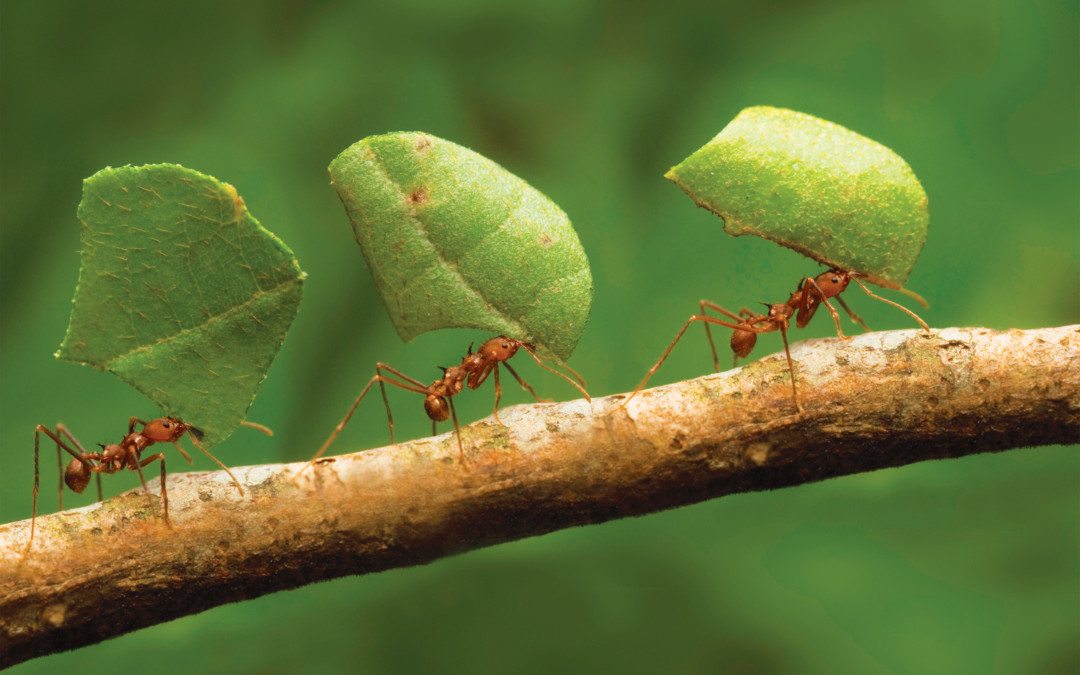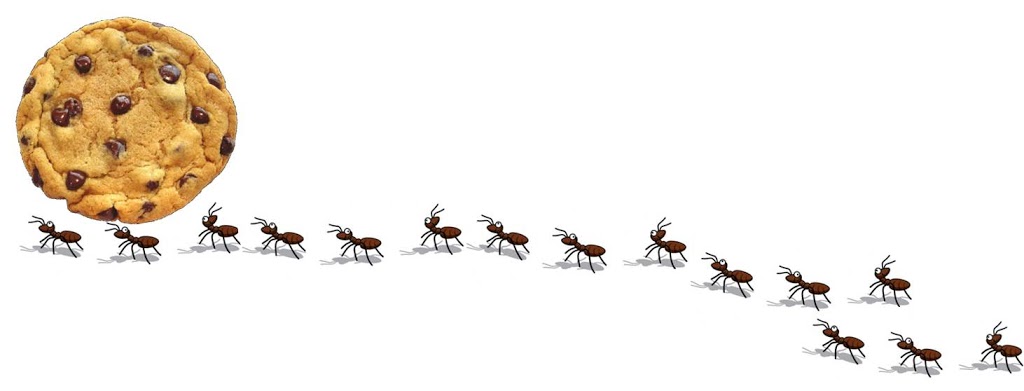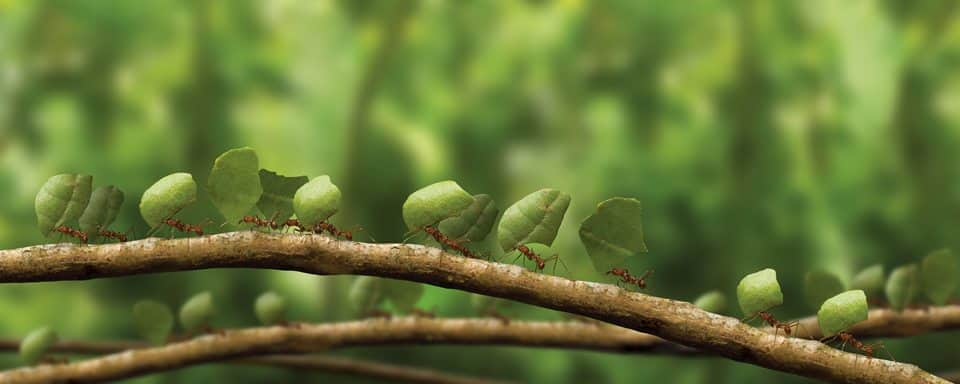Ant Scent Trail Not Actually Produced by Ants Themselves?
Ants may have the largest brains of any insect, but that doesn’t mean a single ant on its own is all that smart. An individual ant is not very bright, but ants in a colony, operating as a collective, do remarkable things. Sure, they are pretty intelligent but they are also invasive as hell.
There’s little you can do when a bunch of them/a colony decide to move into your office or home. And a little trick to confuse these critters and possibly get rid of them is to mask their trail scents they leave behind when on a venture.
When a forager goes out and discovers food, it marks the path from the food to the nest using a pheromone trail. Other ants, who smell with their antennae, then follow the path. Depending upon the variety of ant, colonies will further establish sub colonies near resources or they will send out queens to establish new independent colonies.
Ants use pheromones to coordinate their communal activity or to leave behind tracking scents. Volatile pyrazines, for instance, mediate food resource gathering and alarm behaviors in different ant species.
Now, in a fascinating, yet bizarre discovery scientists at the University of São Paulo have found that a bacterium called Serratia marcescens that lives in the leafcutter ant’s gut is somehow involved in the production of this scent.
“We’ve observed this phenomenon in more than one ant colony. It raises an interesting question. Does the bacterium Serratia marcescens produce trail pheromones for the ants or contribute to this process in some way? We intend to investigate in search of answers,” said Mônica Tallarico Pupo, a professor in the University of São Paulo’s Ribeirão Preto School of Pharmaceutical Sciences (FCFRP-USP) and the principal investigator for the project.
The study describes the dependency between social insects and the symbiotic microorganisms with which they interact in a mutually beneficial relationship. The pyrazine-producing bacterium was discovered by chance when the scientists were looking for microorganisms capable of protecting ant colonies from parasitic fungi.
“The leaves carried to their nests by these leafcutters actually serve as a substrate for the cultivation of Leucoagaricus gongylophorous, the fungal species on which they feed. However, this system is susceptible to infections,” Pupo explained. “In some cases, another pathogenic species that may impair the ant colony’s viability grows on the fungus they eat. The symbiotic bacteria produce compounds that can kill the parasitic fungi without damaging the food source. We set out to identify these compounds.”
In their study, the team managed to isolate and culture these bacteria found on the surface and inside the bodies of the ants. One particular species, Serratia marcescens, emitted a strong aroma that closely resembled the actual smell of the ants. In their curiosity to learn the origin of the scent, the team stumbled on aromatic pyrazine compounds. They accomplished this by absorbing aromatic compounds from the culture plates and analyzing them by gas chromatography-mass spectrometry (GC-MS).
“We found both pyrazines and bacteria in the ants’ poison glands,” Pupo said. “We don’t know for sure if their synthesis is shared: maybe the microorganism produces the aromatic compounds and the ants store them in their glands. In future studies, we plan to test techniques to remove the bacteria from the ants and observe whether the compounds continue to be produced.”
Another line of research the group plans to pursue consists of determining whether similar phenomena can be observed in other ant species. Nothing of the kind has been described in the literature.






























:max_bytes(150000):strip_icc():format(webp)/ants_ChrisStein-56a4e8185f9b58b7d0d9d4ec.jpg)


